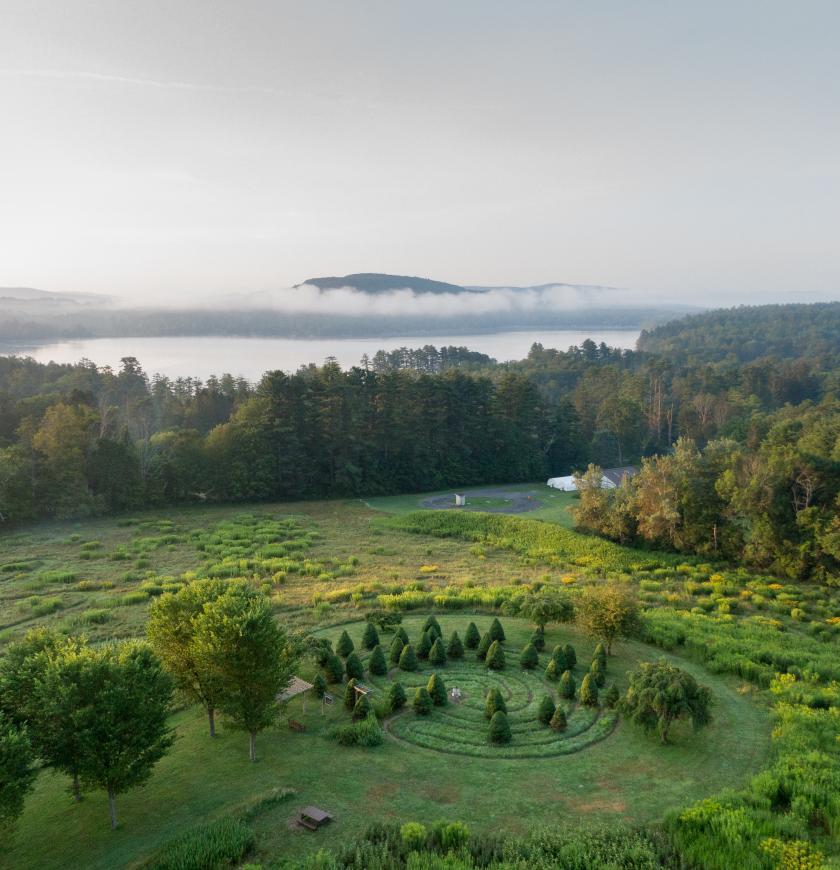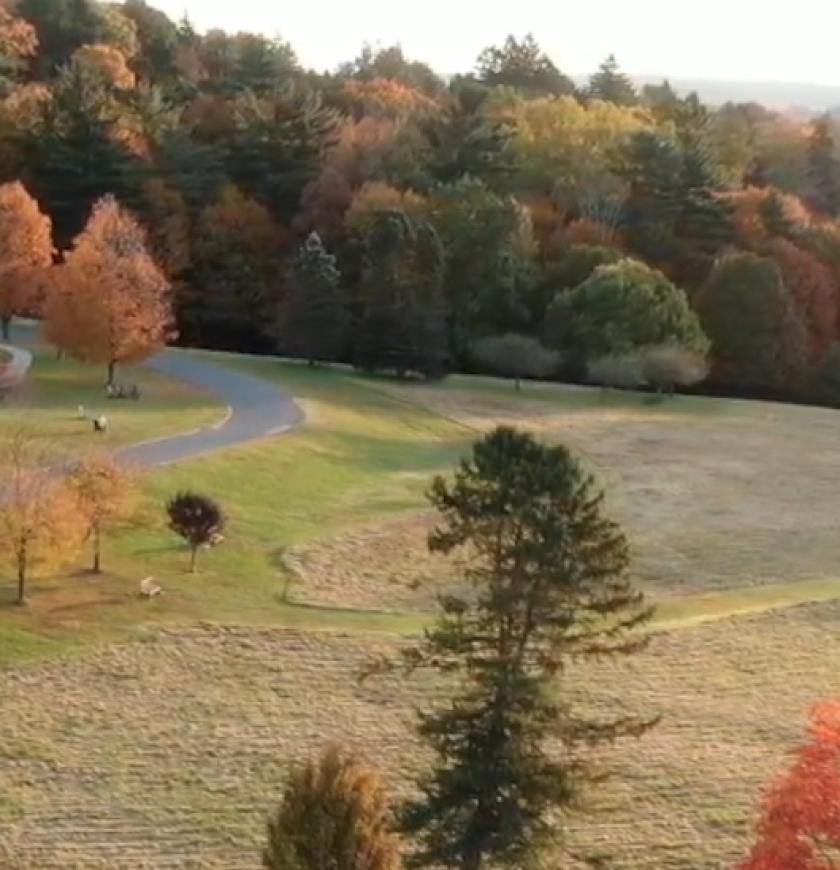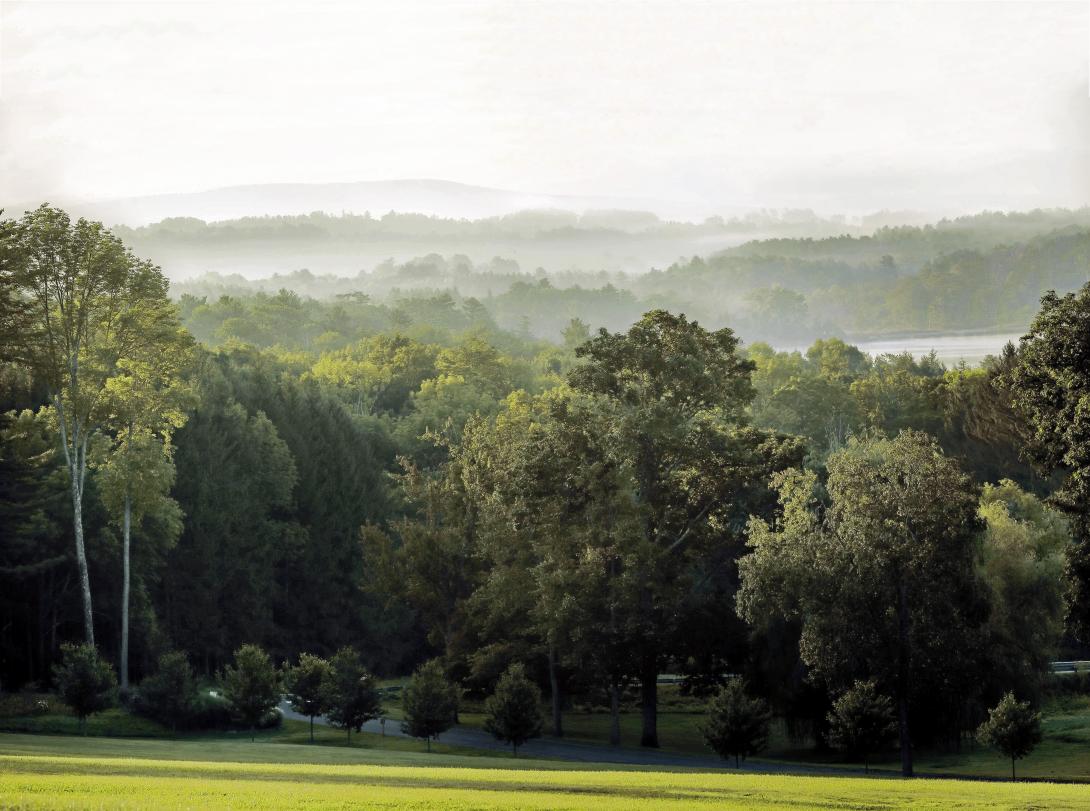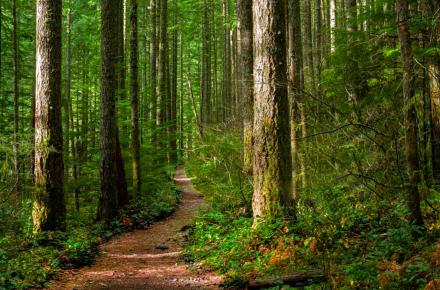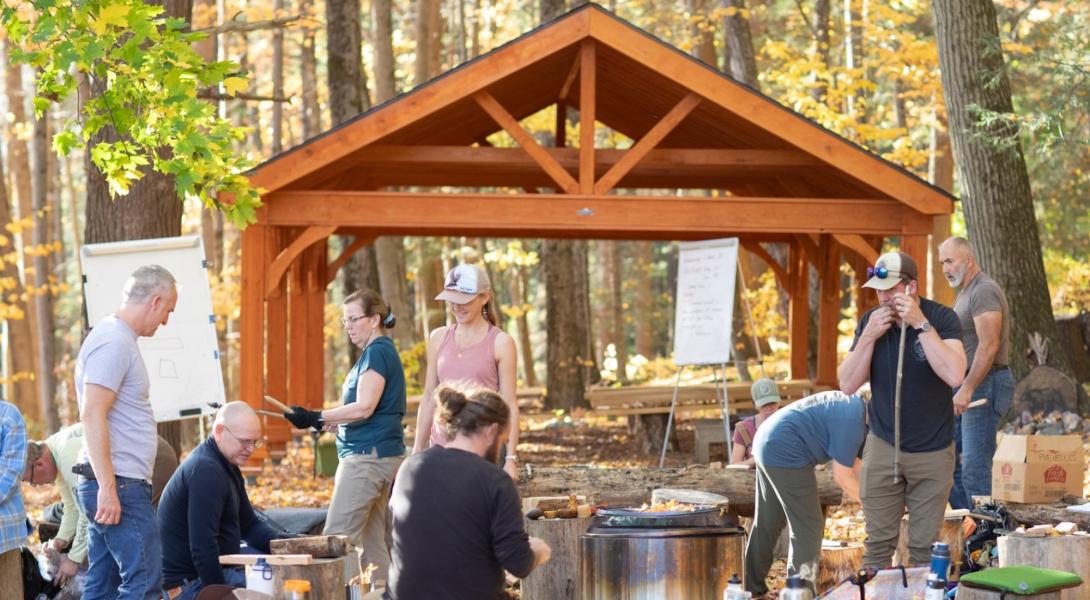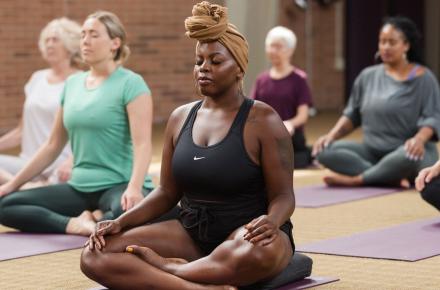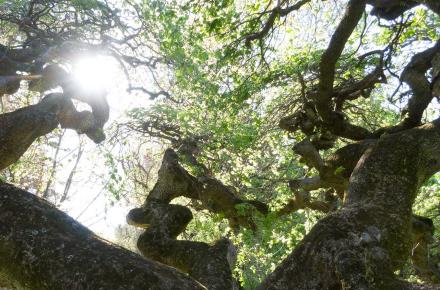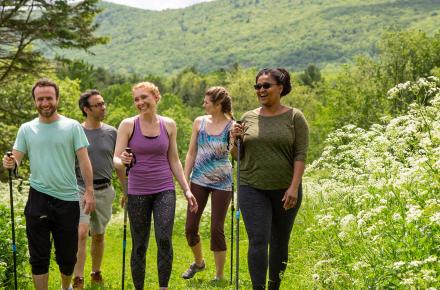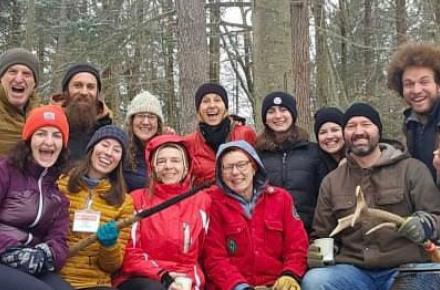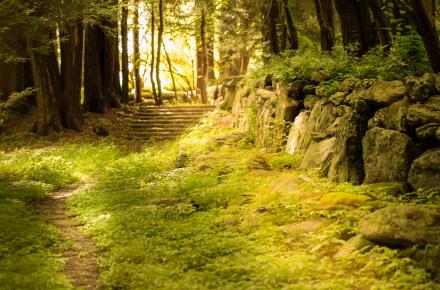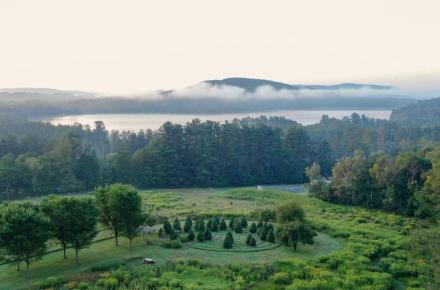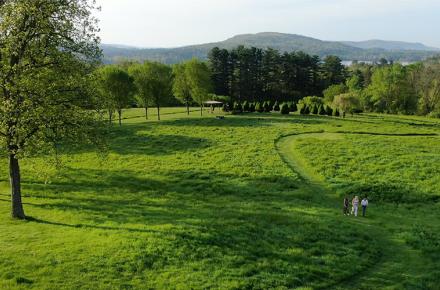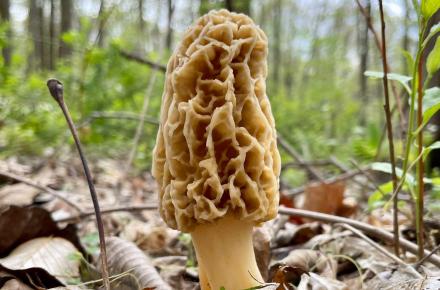Where mindfulness meets the wild.
Level 1 gives you the essential skills to guide meaningful, mindfulness-based experiences in nature. Through this training, you’ll learn to invite others into a reciprocal connection with the Earth, where time outdoors becomes a source of restoration and belonging. Blending cross-cultural wisdom with modern mindfulness, our approach transforms outdoor leadership into a pathway of connection and care. This program is perfect for anyone who feels called to share the healing power of nature with their community.
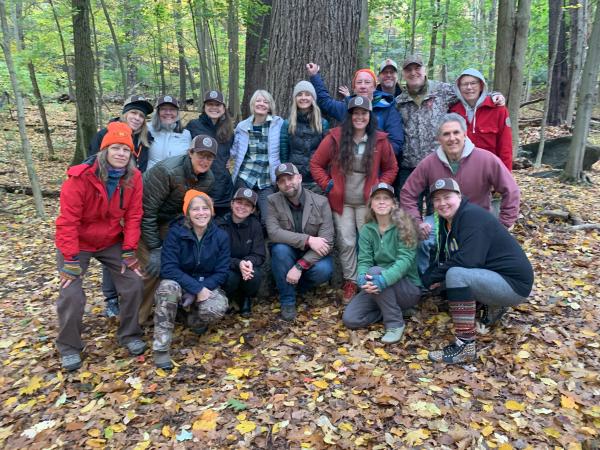
Why Kripalu?
Becoming a Mindful Outdoor Guide through Kripalu invites you to merge leadership with deep connection to the natural world. Drawing on Kripalu’s 50 years of expertise in mindfulness and embodied practice, this training equips you to lead others in experiences that cultivate presence, resilience, and reverence for the earth. As a guide, you’ll inspire people to slow down, reconnect with themselves, and remember their essential bond with nature.
FAQs
A pre-requisite of consistent mindfulness practice is required. You must be comfortable being outdoors all day long in a variety of temperatures and settings. Comfortability walking 2–3 miles, up several flights of stairs and on natural, uneven terrain required.
We offer a limited number of scholarships for some of our Kripalu Schools Trainings. Once accepted to one of our Schools, you will receive a link to our scholarship eligibility form in your acceptance email if any are available.
Partial scholarships are awarded for select Schools trainings. On campus Schools scholarships cover 50% of the total cost of the training–total cost includes tuition and dorm housing. Hybrid Schools Scholarships cover 40% of the total cost of the training– total cost includes tuition and dorm housing. Online Schools Scholarships cover 30% of the total training tuition. If you choose housing other than a dormitory, you will be responsible for the full cost of housing.
Learn more here. Contact housing@kripalu.org with questions.
Required Reading List:
- Last Child in the Woods: Saving Our Children from Nature Deficit Disorder, Richard Louv
- Your Brain on Nature, Eva Selhub and Alan C. Logan
- Braiding Sweetgrass: Indigenous Wisdom, Scientific Knowledge, and the Teachings of Plants, Robin Wall Kimmerer Please read ‘Learning the Grammar of Animacy,’ ‘Allegiance to Gratitude,’ ‘In the Footsteps of Nanabozho: Becoming Indigenous to Place’.
- The Miracle of Mindfulness, Thich Nhat Hanh
- Your Guide to Forest Bathing: Experience the Healing Power of Nature, M. Amos Clifford
- Rewilding: Meditations, Practices, and Skills for Awakening in Nature, Micah Mortali
- What the Robin Knows: How Birds Reveal the Secrets of the Natural World, Jon Young
Suggested Reading:
- The Way of Council, Jack Zimmerman and Virginia Coyle
- The Nature Principle: Reconnecting with Life in a Virtual Age, Richard Louv
- The Nature Fix: Why Nature Makes us Happier, Healthier, and More Creative, Florence Williams
- Peterson Field Guide to Birds of Eastern and Central North America, Roger Tory Peterson
- National Audubon Society Field Guide to Trees: Eastern Region, National Audubon Society
- Tracking and the Art of Seeing: How to Read Animal Signs, Paul Rezendes
There are no homework assignments outside of the required (and suggested) reading.
There is no final written exam.
Students receive a course manual.
100% attendance is required for all on-campus and online sessions. Please keep in mind that full participation is required. For online sessions, this also includes your camera being on with you present. Excused absences with required make-up assignments are granted on a case-by-case basis due to unexpected illness, travel delays, or family emergencies. If you have questions about the Schools attendance policy, please contact kripaluschools@kripalu.org.
Graduation takes place on the final day of your training and is only open to program participants.

